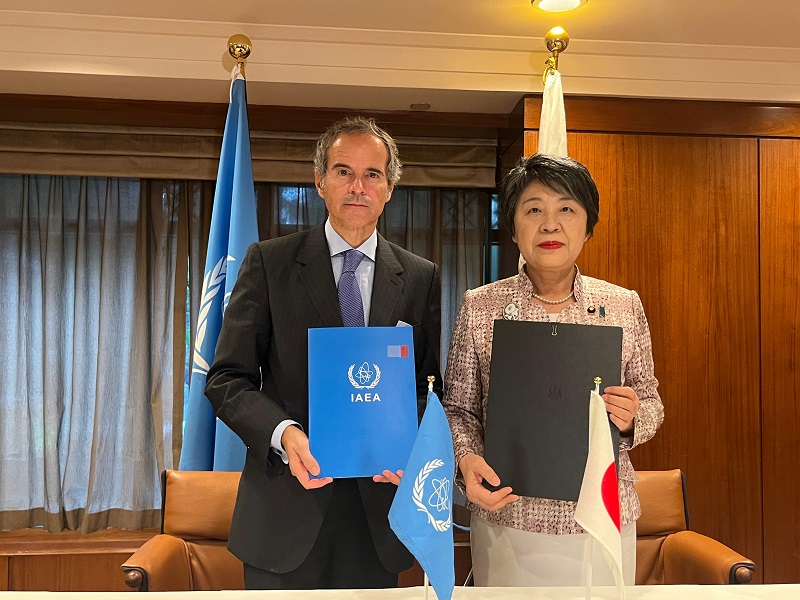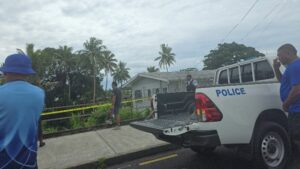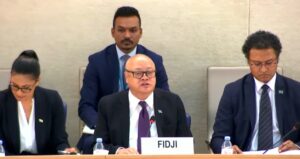Pacific Islands Forum Foreign Ministers called for continued dialogue with the Government of Japan and IAEA in their statement on the former’s release of ALPS-treated nuclear wastewater into the Pacific Ocean.
Acknowledging their role as the custodians of the Pacific in the statement, released following their meeting in Suva recently, the foreign ministers “highlighted the priorities of ensuring international consultation, international law, and independent and verifiable scientific assessments” and re-emphasised “our collective Forum position and the process we have taken over the last three years on this matter.”
“We as Forum Foreign Ministers, are committed to continuing the dialogue with the Government of Japan and welcome the IAEA’s proposal for an annual dialogue mechanism with the Forum on ongoing monitoring and evaluation of the release,” the statement said of the discharge of Advanced Liquid Processing Systems (ALPS) treated water from the damaged Fukushima Daiichi Nuclear Power Plant into the Pacific Ocean. The discharge started on August 24 and is expected to span approximately the next 30 years.
“We emphasise the need to build regional scientific capacity and monitoring capabilities to assess the health and well-being of the Pacific maritime ecosystem including impacts on human health.”
It also recommended that the issue be embedded in the PALM Meeting agenda, in the establishment of an annual political dialogue mechanism, and in ongoing independent monitoring by the IAEA. The matter is also on the agenda when Forum leaders meet in Rarotonga on 6-10 November for the 52nd Forum Leaders meeting.
The Forum Foreign Ministerial is one of seven standing meetings of the PIF programme ahead of the Forum Leaders’ 52nd meeting. The latest session concluded last Friday and was chaired by Cook Island’s PM Mark Brown as Forum Chair. In attendance were Kiribati President Taneti Maamau, Nauru President Russ Joseph Kun, and Samoa Prime Minister Fiame Naomi Mata’afa who also hold the Foreign Affairs portfolio in their respective countries. Australia, New Zealand, Palau, Solomon Islands, Tonga, and Tuvalu attended at the ministerial level, and all other members at the diplomatic level. The Ulu, Kelihiano Kalolo, represented PIF associate member Tokelau.
As well as the Fukushima issue, Foreign Ministers also discussed key climate action policies and frameworks to advance the region’s efforts on climate change and sea-level rise advocacy, globally.
IAEA-Japan Sign Agreement Detailing Review of Fukushima Discharge

The International Atomic Energy Agency (IAEA) and Japan today signed an agreement setting out the full scope of the agency’s comprehensive and continuous safety review of the discharge of treated water over the set duration, on-site and at sea.
In a statement, IAEA said the agreement sets out five main areas of the IAEA’s safety review work: 1) monitoring and assessment, focused on the protection of people and the environment; 2) the IAEA’s presence in Japan and at the FDNSP, including for conducting onsite analysis; 3) regular Agency review missions; 4) corroboration of Japan’s source and environmental monitoring based on independent sampling and analysis; and 5) outreach and awareness activities, including sharing key information with the public.
IAEA Director General Rafael Mariano Grossi and Japanese Foreign Minister Kamikawa Yoko signed the Memorandum of Cooperation on the sidelines of the United Nations General Assembly in New York.
These activities, the IAEA says will enable them to check that the relevant international safety standards are constantly applied during the discharge, backed up with real-time and other monitoring data on the Agency’s website. In July, Grossi established an IAEA office at the FSDNP.
Earlier this month, the IAEA’s first independent sampling and analysis of seawater near FDNPS since the discharge started also confirmed that the tritium levels were below Japan’s operational limits.
“As today’s Memorandum of Cooperation demonstrates, the IAEA’s work is far from over. In some respects, with last month’s start of the discharge, it is only now beginning,” Grossi said.
Photo: PIF and IAEA









